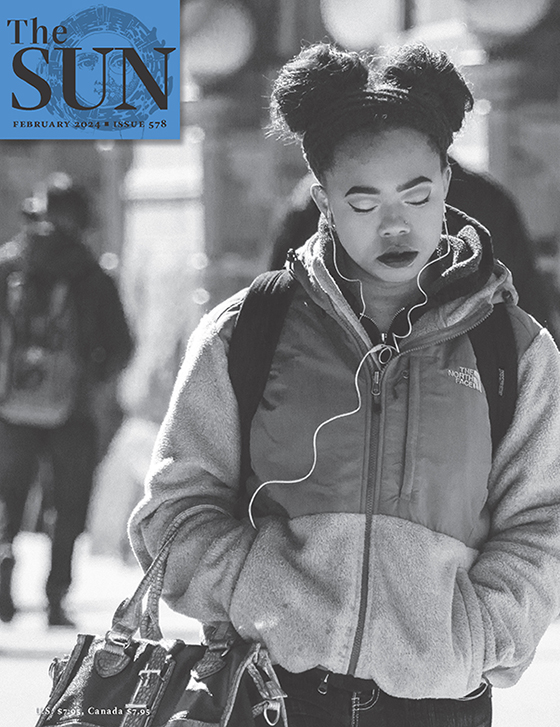Click the play button below to listen to Benjamin S. Grossberg read
“I Was Carrying a Velvet Wingback through the Streets of Houston.”
Who isn’t, at twenty-three, sexy? In never-been-kissed cutoffs with buzzed hair. Did I even have a beard yet? I looked like the virgin I was—was, at least, in all the interesting ways. “Chicken,” they would’ve said back then. And even sexier and more virginal since I was covered in sweat and doing something ridiculous. What did he see, the van driver who pulled up beside me as I caught my breath in front of a green wingback, in a midriff T with my belly button exposed and a smattering of gold hair beneath it—chicken for a chicken hawk? The passenger-side door swung open, and the driver leaned across the seat, down toward me. Black mustache to the sides of his mouth, tight white T-shirt, hair so black it could’ve been dyed, black stubble down his throat into his shirt. He looked Village People gay. That’s what I thought. Too gay to be sexy but was anyway. And there’s no good way to say this, but I was instantly afraid he had AIDS. Because he looked so much gayer than anyone I had seen growing up in New Jersey. Black leather baseball cap. Black leather jacket. Studded belt. Dark-blue dungarees under leather chaps. A metal-studded armband around one biceps. It seems important now to remember which arm, what that signifies. He leaned closer as he spoke, his voice drawn out, curving like the polished rack of a longhorn, and said simply, You need a hand with that? By the time he’d finished the sentence, I was in the passenger seat, my green-velvet chair being stowed in back. Do I remember anything about the ride—or even about the years that followed, during which I lived in the city—as vividly as how, for the few miles I sat beside him, he asked powdered-sugar questions, his voice Dallas but also Atlanta, longhorn but also Daisy Mae: Where are you from? And Do you like the city? And finally Are you gay, Ben? He didn’t try to get out when we pulled up to my apartment, didn’t say a word as I lifted my chair from the back, and when I returned up front to thank him, he raised a hand and said, Just say hello when you see me out at the bars— but I never saw him. Or maybe I did and didn’t recognize him. So many men looked and dressed exactly like he did, white T-shirt, jeans, some article of leather, blue-black mustache, blue-black hair, a whole society of them, and all with Dallas Daisy Mae voices and hairy chests. And all seeming—I know, I know, this is a terrible thing to say—seeming to be antigens of the disease I was terrified of getting. I lived in that city ten years and never said hello to any of them, not one, not once, when I saw them out at the bars.




